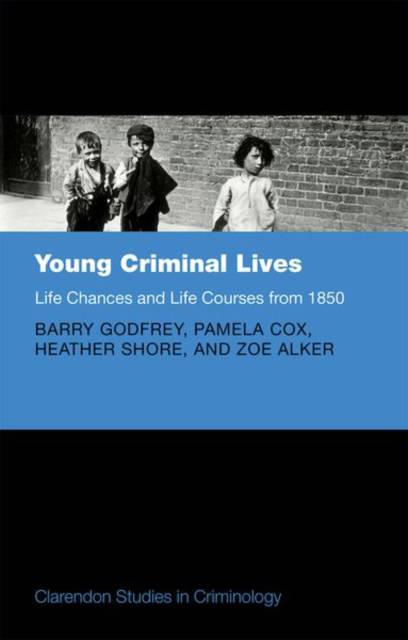
Je cadeautjes zeker op tijd in huis hebben voor de feestdagen? Kom langs in onze winkels en vind het perfecte geschenk!
- Afhalen na 1 uur in een winkel met voorraad
- Gratis thuislevering in België vanaf € 30
- Ruim aanbod met 7 miljoen producten
Je cadeautjes zeker op tijd in huis hebben voor de feestdagen? Kom langs in onze winkels en vind het perfecte geschenk!
- Afhalen na 1 uur in een winkel met voorraad
- Gratis thuislevering in België vanaf € 30
- Ruim aanbod met 7 miljoen producten
Zoeken
Young Criminal Lives: Life Courses and Life Chances from 1850
Barry (University of Liverpool) Godfrey, Pamela (University of Essex) Cox, Heather (Leeds Beckett University) Shore, Zoe (University of Liverpool) Alker
€ 115,45
+ 230 punten
Omschrijving
Uses innovative digital methods to track the life course of 500 Victorian children living within, or at the margins of, the early English juvenile reformatory system, offering rich interdisciplinary insights into how far the efforts of these institutions were successful, and their long-term, practical impact.
Specificaties
Betrokkenen
- Auteur(s):
- Uitgeverij:
Inhoud
- Aantal bladzijden:
- 258
- Reeks:
Eigenschappen
- Productcode (EAN):
- 9780198788492
- Verschijningsdatum:
- 26/10/2017
- Uitvoering:
- Hardcover
- Afmetingen:
- 147 mm x 222 mm
- Gewicht:
- 452 g

Alleen bij Standaard Boekhandel
+ 230 punten op je klantenkaart van Standaard Boekhandel
Beoordelingen
We publiceren alleen reviews die voldoen aan de voorwaarden voor reviews. Bekijk onze voorwaarden voor reviews.









